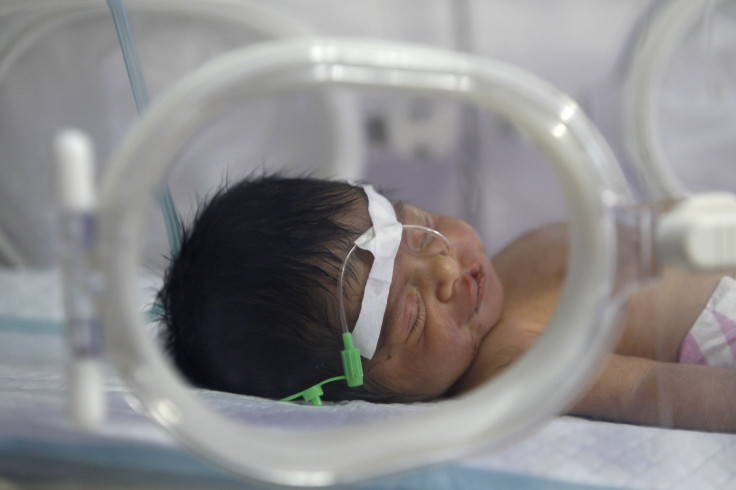Understanding The Association Between Older Mothers And Increased Risk Of Birth Defects In Newborns

Researchers have found new clues that better explain why older mothers have babies with a higher risk of birth defects, a new study reveals. The study was conducted by researchers from Albert Einstein College of Medicine of Yeshiva University.
For the research, study authors analysed data from more than 4,000 families. The researchers found that the normal process by which parental chromosomes are shuffled before being passed to children appears to be less regulated in older mothers.
Researchers looked at meiosis, the specialised type of cell division in which cells containing the 46 chromosomes (23 pairs) normally found in human cells separate to form sperm or egg cells that contain 23 chromosomes, one from each of the 23 chromosomal pairs. Before it separate, chromosomes undergo a shuffling process called recombination. This is important to a species' genetic diversity, ensuring that sperm or eggs will have novel combinations of genetic traits.
"It's been known for many years that the rate of recombination varies across the genome, but less is known about how the rate of recombination changes with parental age," said study leader Adam Auton, assistant professor of genetics and of epidemiology and population health at Einstein, in a press statement.
The researchers found that the number of recombination events transmitted from mother to child increases with maternal age. Additionally, more recombination events take place in close proximity to each other among older mothers. However, no such occurance was found in older fathers.
"We know there are cellular processes that tightly regulate the process of recombination," said Auton. "So the greater rate of recombination we observed in the chromosomes of older mothers could imply that this tight regulation becomes weaker with age. Basically, recombination appears to be a more dynamic process than we previously appreciated. Our study adds to the understanding of the basic biology of meiosis and how recombination shapes the evolution of the human species. In the long run, it may help us understand how aneuploidy or certain types of genetic mutation can occur through failures of recombination."
Findings of the study were published online in the journal Nature Communications. This study was supported in part by Albert Einstein College of Medicine, and by grants from the National Institutes of Health to Einstein and 23andMe.
To contact user, email sammygoodwin27@gmail.com




















